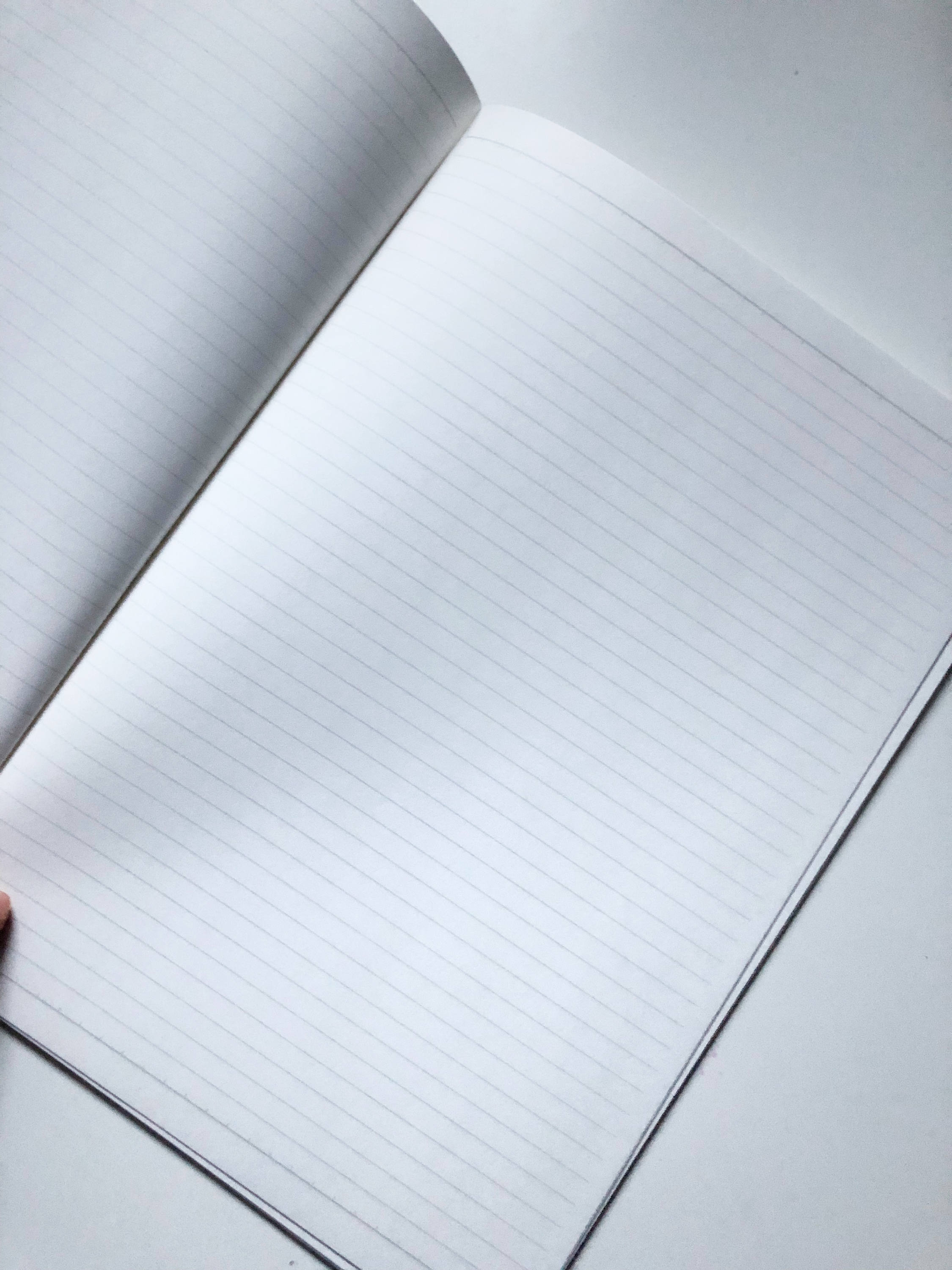

The SWLing Post now participates in two affiliate advertising programs with two large retailers that still sell shortwave radios, the Amazon Services LLC Associates Program and the eBay Partnership, designed to provide a means for sites like ours to earn advertising fees by advertising and linking to these retailers of radio products. Many of you have suggested in the past that the SWLing Post join an affiliate links program. In truth, my shortwave radio logs are less organized than my ham radio logs, but I’m constantly jotting down broadcasters, times, frequencies and receiver performance notes.Ĭlick here to check out Muji A6 Notebooks on Amazon ( affiliate link supports the SWLing Post).
Muji notebooks portable#
I just ordered another pack of five this Muji A6 Notebooks this week and plan to put one in my portable SDR kit, and two of my portable receiver kits. I prefer the slim profile of the Muji Notebooks for day-to-day field work. The Muji Noteboooks aren’t designed to handle water, but in truth it’s very rare that I’m playing radio in the rain. The pages lay flat once open, too.įor the record, I also keep a few Rite in the Rain weatherproof notebooks handy if I’m heading to a park or summit after heavy rainfall, if there’s the possibility of rain in the forecast, or if I’m camping.

While I tend to prefer spiral-bound notebooks for logging, I like the binding on these notebooks because it doesn’t catch on anything and keeps the profile super thin which is perfect for small packs and cases. I love these Muji notepads–they’re compact and thin, but the paper quality is nice and it’s large enough I can use “normal” hand writing. I even dedicate one for my Elecraft AX1 antenna kit. I purchased a pack of five notebooks and put one notebook in each of my radio field kits. Since my activations tend to be short, it’s rare that I exceed 40 contacts. I was skeptical about the size, but placed an order anyway.Įach book has 30 pages which means if I write on the front and back of each sheet, it should last me up to 30 average park activations (assuming roughly 25-40 contacts per activation). On Amazon, they’re sold in packs of 5 books for $12.00 US. She measured my field kit pack and suggested the Muji A6 lined notebook. My wife (an artist) suggested I check out Muji Notepads of Japan because she’s both pleased with the quality and price as compared with other quality notebooks. Muji A6 NotebooksĪ couple months ago, I was searching for a notepad that could easily fit in one of my compact field radio kits. It gives me more of a sense of accomplishment for some reason. Plus–if I’m being completely honest here–I love seeing my handwritten logs after an activation.
Muji notebooks archive#
Not only do I find it easier to log on paper first, but by having a full set of logs in notebooks, I know I’ve got a proper archive of the activation if my tablet fails me. I carry the Surface Go tablet with me on about 75% of my field activations, but leave it at home if I’m doing a substantial amount of hiking.
Muji notebooks software#
Regardless if a contact is in CW or phone, I copy the callsign and exchange information on paper first, then immediately transfer it to my logging software on the tablet.

Muji notebooks code#
Always.įor one thing, when I’m copying a callsign in Morse Code (CW), I prefer writing down the call as it’s being sent. While I often do live logging with my Microsoft Surface Go tablet to speed up log submissions, I always log on paper first.

If you’ve followed any of my field reports for Parks On The Air (POTA) here on the SWLing Post or on, you’ve probably seen me employ a wide variety of note pads and logging sheets. I find that the act of writing something down–pen to paper–locks thoughts/memos in my memory much better than taking notes on a digital device. To this day, I keep notepads in my EDC bag and near my radio desk. While I could hardly afford notepads and pens/pencils I found in those stores, I did occasionally splurge. It was in France I discovered the amazingly wide variety of notepads that could be found in a Papeterie or stationery store. I kept one in my pocket, my backpack, and had larger notepads for each one of my classes. When I moved to France to do undergraduate studies in the early 90s, I became reliant on small notepads to keep my brain organized and maintain some sense of sanity. While I love leveraging technology to make the most of my radio world, I also have a sincere appreciation for simple “analog world” solutions to my needs.


 0 kommentar(er)
0 kommentar(er)
